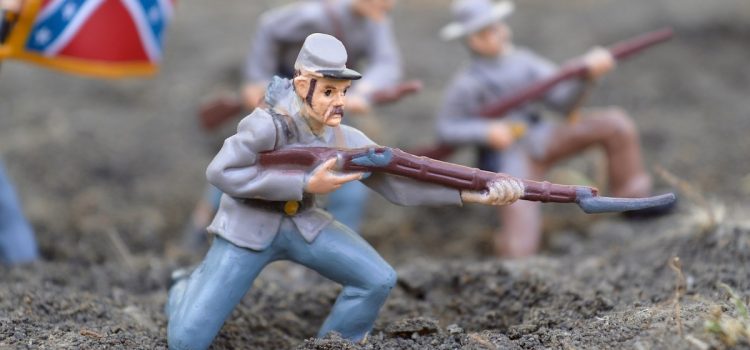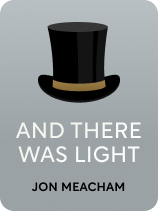
How did some Confederates view the Union’s victory? How did they hope to keep their cause alive and secure some victory after all?
According to historian Jon Meacham, after the Civil War, some of the vanquished Confederates developed an idealized view of their cause. Meacham argues that at least some aspects of this “Lost Cause” ideology persist even today.
Continue reading to learn about this perspective on Civil War history.
Lost Cause Ideology
After the end of the Civil War, some prominent white Southerners—ranging from religious leaders to influential authors—invented a romanticized version of the Confederacy’s history, which they came to call the Lost Cause. According to Lost Cause ideology, the Confederacy had been doing Black people a much-needed service by allowing them to work in exchange for housing and food.
(Shortform note: The idea that Black people are unable to take care of themselves, and therefore need to be ruled by white people, is one of the oldest racist beliefs in the world. In How to Be an Antiracist, Ibram X. Kendi explains that this idea was invented in the 15th century by the biographer Gomes de Zurara, who created the concept of race in order to justify Portugal’s decision to enter the African slave trade. Zurara wrote that Africans were a completely different—and inferior—race from Europeans and that the “primitive” Africans needed to be saved by the “enlightened” Europeans.)
According to Meacham, proponents of Lost Cause ideology said that the South’s rebellion had been a righteous defense of states’ rights against federal tyranny. As such, the Confederacy’s defeat had been a tragic victory for the forces of evil and oppression.
Paradoxically, these same people also said the “Lost Cause” wasn’t lost at all; though they’d been defeated on the battlefield, the spirit of the Confederacy would live on. They urged Southerners to uphold Confederate ideals in politics, education, and social norms—in other words, to continue the fight for white supremacy with social and political means, rather than military ones.
(Shortform note: The idealized version of the Confederacy presented in Lost Cause ideology is still an influential part of American culture, particularly in the American South. Likewise, the Confederate battle flag (colloquially known as the “Stars and Bars”) is still a relatively common sight in conservative areas of the country, where people believe that it represents their heritage and the struggle for freedom from government tyranny. Although the Civil War ended over 150 years ago, the United States is still deeply divided by many of the same issues that caused the war in the first place—for instance, how much power the federal government should have and racial inequality—due in large part to Lost Cause ideology.)

———End of Preview———
Like what you just read? Read the rest of the world's best book summary and analysis of Jon Meacham's "And There Was Light" at Shortform.
Here's what you'll find in our full And There Was Light summary:
- The myths and legends that surrounded Abraham Lincoln
- Abraham Lincoln's life in chronological order, from his birth to his assassination
- What the Republican Party looked like in the 19th century






